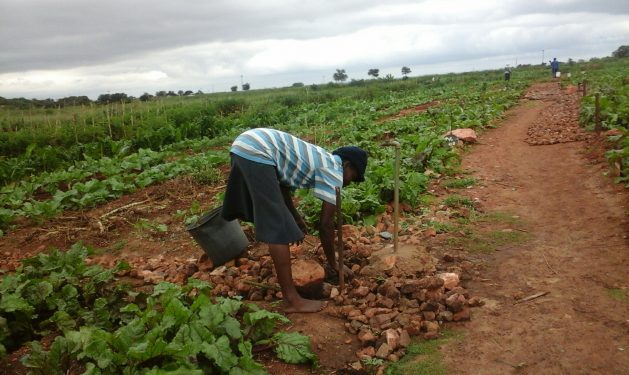To Reverse Food Insecurity Build a Climate Resilient Agricultural Sector

URBANA, Illinois, Jun 16 (IPS) - The number of people facing acute food insecurity has hit a five-year high, according to a recently released annual report by the Global Network Against Food Crises (GNAFC) - an international alliance of the United Nations, the European Union, governmental and non-governmental agencies working to tackle food crises. In addition, the report noted that 28 million people were one step away from starvation. This was attributed to conflict, economic shocks due to COVID-19 and climate change associated weather events.
The continued trajectory of increase in food insecurity is making it clear that our current food systems are not resilient. Moreover, with climate change expected to continue to bring extreme events — from droughts to floods to invasive insects to deadly cyclones — it is likely going to get worse. We must urgently act to reverse these current trends.
The questions, then, become these: How can we reverse these worrisome trends? How can we ensure that people, across Africa and around the globe have the tools, technologies, and resources to be resilient to climate change?
To answer these questions, we must re-examine the underpinning roots to food insecurity.
First off, most of the people affected by hunger live off the land, many as small holder farmers. They depend on agriculture, a sector that is highly vulnerable to climate change.
Furthermore, many farmers continue to rely on an agricultural system that remains rain-fed and underdeveloped. With limited access to infrastructure, current agricultural knowledge and reliable access to financial services, their ability to build a resilient agricultural system remains an unattainable dream.
Based on the challenges above, tackling rising food insecurity would greatly benefit from modernizing agriculture and making the agricultural sector resilient to climate change.
The good news is that building a resilient agricultural sector and dealing with climate-linked weather events such as drought, flooding, tropical cyclones, and insect invasions can benefit from science. Science can help to develop climate-smart efficient water management technologies such as the drip irrigation, improved drought and flood tolerant crops and crops that are resistant to insects and plant diseases. Also important are advances in improving and restoring soil health which is fundamental and key.
In addition to science, countries that continue to face food insecurity must invest in climate smart agricultural practices. As defined by the Food and Agriculture Organization of the United Nations (FAO), climate smart agricultural practices are approaches that help to transform and reorient agricultural and food systems to effectively support development and ensure food security in a changing climate.
These approaches aim to sustainably increase agricultural productivity, adapt, and build resilience to climate change and reduce or remove greenhouse gas emissions. Many of the science-based solutions above are regarded as climate smart strategies.
Coupled with building climate smart strategies, is the need to invest in early warning systems, to ensure that farmers and citizens who continue to face hunger are not caught unawares. To do so, it is important that countries have access to reliable data.
Building resilient agricultural sectors must also go hand in hand with rebuilding rural communities’ infrastructures. Local roads, rural water, energy, and other infrastructures that are critical to ensuring an efficient and functioning agricultural supply chain. Investing in upgrading rural communities should also result in job creation for the rural poor. It also could curtail urban migration, which continues to be an issue affecting many African countries.
Finally, all the above cannot happen and be sustainable without the strong presence of the people that are affected by climate change. They must be at the conversation tables where decisions are being made, or there should be appropriate channels to solicit their thoughts. Without these initiatives being locally driven, and involving broad coalition of stakeholders, we risk delivering unsustainable solutions that are heavily disconnected from the needs.
The task of achieving food security for all remains an enormous challenge. As we continue to invest in climate-smart strategies, upgrade rural infrastructure, and utilize science derived data evidence to improve agriculture and mitigate climate change associated weather events, we will make progress. We must do everything we can to fight food insecurity.
Dr. Esther Ngumbi is an Assistant Professor at the University of Illinois at Urbana Champaign, and a Senior Food Security Fellow with the Aspen Institute, New Voices.
© Inter Press Service (2021) — All Rights Reserved. Original source: Inter Press Service

